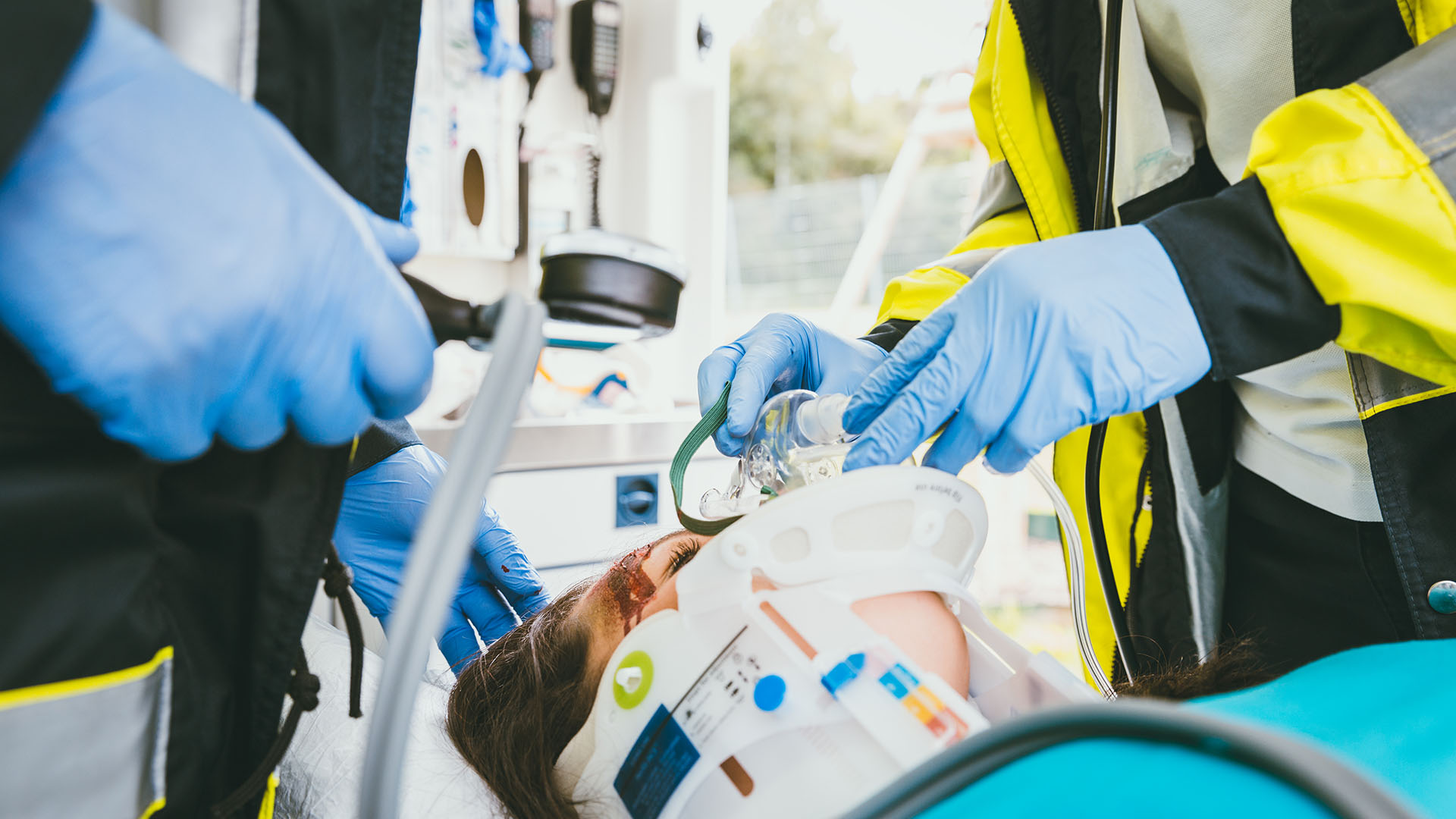Whether you’re a Miami native going about your daily life or a visitor enjoying the warm Florida beaches, accidents and injuries typically happen when you least expect them. While being involved in any type of accident that results in an injury is challenging, in some cases, those injuries can be catastrophic, leaving you to deal with serious, life-altering consequences.
Catastrophic injuries can prevent you from returning to your current job and, therefore, make it impossible for you to pay your normal monthly expenses.
In some cases, you may never be able to return to work at all. You may also be watching your medical expenses mount each month with no way to pay those bills. These concerns can make recovering from a catastrophic accident even more difficult.
If you find yourself facing catastrophic injuries, don’t feel like you have to face them on your own. The experienced Miami injury attorney Mike Redondo at Redondo Law can help you through this difficult time.
If needed, Mike will first help you obtain the medical treatments you need. Next, he’ll work to ensure you receive fair compensation from the negligent party, which can pay for your medical expenses, lost wages, pain and suffering, and any other damages you may have sustained as a result of your catastrophic accident.
$43 MILLION
Catastrophic injuries by a drunk driver
The jury saw the devastating consequences of drunk driving firsthand, and after several hours of deliberating, awarded our clients over $43 million in damages. Although no amount of money will ever make the Haases whole, the jury’s verdict gave them some comfort in that a jury of their peers saw exactly how much their lives had been forever changed by this tragic event.
What makes an injury catastrophic?
Catastrophic injuries are classified not only by the specific nature of the injuries but also by how the injuries will affect your life years into the future.
So what qualifies as a catastrophic injury?
A catastrophic injury generally describes a severe injury that inflicts permanent harm to an accident victim. You may be dealing with physical injuries and limitations, an altered work and family life, and the loss of the ability to enjoy your life and your future.
Here, we explore three types of severe injuries that often result from catastrophic accidents.
Burn injuries
From minor burns to severe third-degree burns, these injuries can be extremely painful, requiring extensive medical treatment and possibly causing long-term physical and psychological trauma.
Spinal cord injuries
Injuries to the spinal cord can result in partial or complete paralysis, drastically changing a victim’s life. Such injuries often require lifelong medical care and support.
Traumatic brain injuries
Involving damage to the brain, traumatic brain injuries can lead to memory loss, cognitive impairment, and other serious neurological effects that could require ongoing care and rehabilitation.
Other frequent results of a catastrophic accident include the following:
- Internal bleeding
- Loss of vision
- Loss of hearing
- The need for lifelong accommodations, care or assistance
- Amputation of a limb or limbs
- Severe scarring or disfigurement
- Organ damage
- The need for prosthetics or assistive devices
- The need for certain medications for life
- The inability to work
- Permanent disability or loss of function
Certain catastrophic injuries can be more difficult to detect than others. For example, some types of catastrophic injuries, such as paralysis or amputations, are obvious.
It should be noted, however, that even when the catastrophic injury is obvious, there can be a number of unseen additional side effects, such as chronic neuropathic pain, skin breakdown and traumatic brain injury, all of which bring their own challenges.
Indeed, a person with a head injury could appear relatively “normal” to the outside world, yet those closest to them could witness a change in basic personality and mood, the inability to fully concentrate, and the inability to handle day-to-day tasks, among others.
What are the long-term effects of a catastrophic injury?
Typically, catastrophic injuries include physical limitations. However, there are other long-term effects the victim can suffer. The type of injury and its severity can determine the effects a person experiences.
In an accident that leaves someone dealing with a traumatic brain injury (TBI), the person might have issues such as confusion, memory loss, chronic headaches, difficulty concentrating and even extreme mood changes.
In the case of a spinal cord injury, a person can experience effects such as breathing problems, difficulty controlling their bladder and bowels and even speech issues.
Catastrophic injuries can also affect people mentally and emotionally. Some can develop anxiety, depression or post-traumatic stress disorder (PTSD).
What kinds of accidents typically lead to catastrophic injuries in Florida?
Although even an accident as seemingly minor as a slip, trip or fall can cause catastrophic injuries depending on the circumstances, some accidents are more likely to result in these types of injuries than others, such as:
- Car accidents. Some car accidents are fairly mild and result in minor injuries like cuts and lacerations. Others can be more devastating. Rear-end, T-bone, head-on, and multi-vehicle collisions can cause a variety of catastrophic injuries.
- Truck accidents. Truck accidents are often more severe than those involving smaller vehicles. Trucks can get into rollover accidents and often carry cargo that can fall onto the road and sometimes contain hazardous substances. The vehicles are also much larger and heavier and take longer to stop, which can cause devastation.
- Motorcycle accidents. Motorcycles are smaller and have an open makeup, leaving riders vulnerable to the elements. When an accident occurs, a rider can be thrown from their motorcycle, or their motorcycle can fall on top of them, resulting in catastrophic injuries.
- Boat and fishing accidents. Boats can get into accidents when they’re taken out in bad weather or when the person operating one lacks experience or consumes too much alcohol. Boat and fishing accidents can often result in catastrophic injuries if a boat capsizes or if someone on the boat is thrown into the water without a life jacket during a collision or other mishap.
What about medical expenses related to catastrophic injuries?
Ongoing medical care for these types of injuries can be expensive and exceed what health insurance covers, often leading to financial troubles.
While the monetary cost of a catastrophic injury can vary significantly, estimates for traumatic brain injuries typically range from $85,000 to $3 million.
As an example, the Christopher and Dana Reeve Foundation estimates the average yearly costs of living with a spinal cord injury to be the following:
- High quadriplegia (sometimes also referred to as tetraplegia) is estimated to cost $1,064,716 for the first year and $184,891 for each year thereafter.
- Low quadriplegia is estimated to cost $769,351 for the first year and $113,423 for each year thereafter.
- Paraplegia is estimated to cost $518,904 for the first year and $68,739 for each year thereafter.
- Incomplete motor function at any level is estimated to cost $347,484 for the first year and $42,206 for each year thereafter.
Of course, each individual’s circumstances and injuries will vary and the specific costs may be much higher in any given case. There are many more expenses related to catastrophic injuries that impact the amount of medical expenses that may be incurred, including:
- Medications (sometimes for a lifetime)
- Emergency medical services
- Surgeries
- Medical equipment (hospital beds, wheelchairs, lifts, etc.)
- Retrofitting a home or vehicle to accommodate a wheelchair
- Continuing medical care
- Physical and occupational therapy
- Lost wages
- Diminished earning capacity
- Visiting nursing care
- Psychological counseling
- Pain and suffering
- Disfigurement
- Emotional distress
What compensation is available for catastrophic injuries through a personal injury lawsuit?
Individuals who suffer catastrophic injuries in an accident that was caused by another person through negligence can seek compensation for certain damages. In a successful personal injury lawsuit, a person can recover economic and noneconomic damages.
- Economic damages include medical expenses, future medical costs, lost wages and lost earning capacity.
- Noneconomic damages include pain and suffering, loss of enjoyment of life, emotional distress, mental anguish and loss of companionship.
Sometimes, punitive damages may also be awarded. However, this is only possible in a case involving an accident caused by especially reckless or deliberate actions.
Florida non-economic damages and
personal injury claims
Non-economic damages can vary significantly from one person to another. Capping these damages can disproportionately affect those with lower or no income, which is one of the reasons why non-economic damages aren’t capped under Florida law.
How does catastrophic injury compensation differ from other personal injury lawsuits?
Compensation for catastrophic injuries is not the same as that from basic personal injury lawsuits. While personal injury can leave a lasting mark on a victim, many of those injuries resolve over time. By contrast, catastrophic injuries are more severe and involve more extensive damages. As a result, they require a higher amount of compensation for the victim.
Is there a cap on pain and suffering in Florida?
In Florida, there are no monetary caps on damages like pain and suffering. This means that the plaintiff can seek an unlimited amount of money in their lawsuit for the pain and suffering caused by their catastrophic injury.
How long do I have to file a personal injury lawsuit in Florida after a catastrophic injury?
The statute of limitations for personal injury claims in Florida is 2 years. As a result, after suffering a catastrophic injury, you must file your claim within 2 years of the date of the accident or the date the injury manifested if you want to collect compensation.
How Redondo Law can help after a catastrophic accident
Victims of a catastrophic accident often face a lifetime of physical, emotional and financial hardship because of the injuries they suffered in the accident. Most of us assume we’ll receive fair compensation from the negligent party or their insurance company after a catastrophic injury, but unfortunately, this is rarely the case.
That’s why you need a skilled and experienced Miami catastrophic accident attorney by your side who can accurately calculate the long-term costs of your medical care in the future while working with you to build the best strategy to pursue any compensation you may be entitled to.
Mike Redondo will not only be your attorney but your advocate—the person who stands by your side and aggressively fights for your future.
If you’ve been injured in a catastrophic accident, you can benefit from Mike’s experience in fighting for justice and securing equitable compensation for his clients. Contact Redondo Law today for a free comprehensive consultation for your catastrophic injuries.


